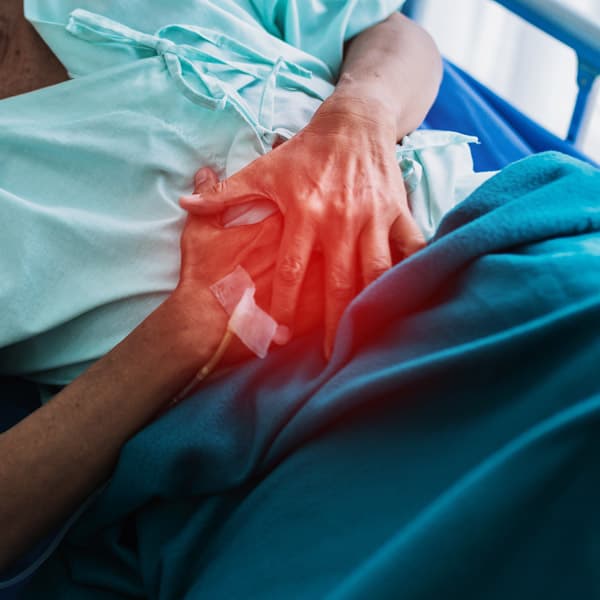Stomach Cancer
Stomach cancer, also known as gastric cancer, occurs when cells in the stomach begin to grow and multiply uncontrollably, eventually forming malignant tumours.
Richmond Gastroenterology Centre

Dr. John Hsiang
MBChB (NZ), FRACP (Australasia), MD (Doctorate), FRCP (Edinburgh), FAMS (Gastro)
Dr. John Hsiang is a distinguished gastroenterologist in Singapore with extensive training and experience in digestive health. He obtained his Fellowship of the Royal Australasian College of Physicians in Gastroenterology in 2012 and holds a PhD in viral hepatitis and fatty liver disease research.
He provides care for a broad range of digestive and liver concerns, combining thorough evaluation with tailored management to support patients’ long-term well-being.
Dr Hsiang is skilled in performing gastroscopy (upper endoscopy) and colonoscopy to investigate symptoms, detect stomach and colon cancers at an early stage, and provide timely treatment options.
With a commitment to individualised care, he applies an evidence-based approach that prioritises accuracy, effectiveness and patient comfort at every stage of diagnosis and treatment.
Languages Spoken:
English, Mandarin and Hokkien
Fellowship Trained Specialist
20+ Years of Clinical Experience

What is Stomach Cancer?
Stomach cancer, also known as gastric cancer, develops when malignant cells form in the lining of the stomach. It is one of the more common gastrointestinal cancers, though its incidence has declined in some regions due to better detection and treatment of causes such as Helicobacter pylori infection.
In Singapore, it remains a significant health concern, particularly among older adults.
The disease often progresses gradually and may not cause clear symptoms early on. When symptoms appear, they may include persistent indigestion, unexplained weight loss, abdominal discomfort or vomiting.
Stomach cancer can be fatal if left untreated. Outcomes are better when diagnosed early. One key method of early detection is a gastroscopy (endoscopy), which allows your doctor to visualise the stomach lining and perform a biopsy.
Treatment varies depending on the stage of cancer and may involve surgery, chemotherapy, radiotherapy or targeted therapies. Stomach cancer can be curative with timely care.
How does Stomach Cancer Develop?
Stomach cancer usually begins with abnormal changes in the cells of the stomach lining. While the exact cause isn’t always known, several well-established risk factors have been identified.
A key contributor is long-term infection with Helicobacter pylori, a bacteria infection that can cause long-term inflammation and cellular damage in the stomach lining. Other factors include stomach polyps, chronic gastritis, and intestinal metaplasia.
Lifestyle habits such as a diet high in salted or smoked foods, smoking/vaping, and excessive alcohol use may also raise the risk. In some cases, genetics or family history may play a role.
Symptoms, Risk Factors & Types of Gastric Cancer
Symptoms
Stomach cancer often develops slowly and may not cause noticeable symptoms in its early stages.
When signs do appear, they may be vague and easily mistaken for common digestive issues.
Common symptoms may include:
- Persistent indigestion or heartburn
- Unexplained weight loss
- Abdominal pain or discomfort, especially after meals
- Bloating or feeling full quickly
- Nausea or vomiting
- Fatigue or weakness
- Blood in stool or vomit
Risk Factors
- Chronic infection with Helicobacter pylori
- A history of chronic gastritis or stomach ulcers
- Family history of stomach cancer
- Smoking and excessive alcohol consumption
- A diet high in salty, smoked or preserved foods
- Previous stomach surgery or polyps
- Certain genetic conditions, such as hereditary diffuse gastric cancer (HDGC)
Types of Stomach Cancer
Stomach cancer is not a single disease, but a group of cancers that develop in different parts of the stomach.
The most common type is adenocarcinoma, which arises from the cells lining the inner surface of the stomach.
Adenocarcinomas are further classified into:
- Intestinal type, which tends to grow more slowly and is often linked to Helicobacter pylori infection and chronic gastritis.
- Diffuse type, which grows more aggressively and is less clearly linked to lifestyle or environmental factors.
Less common types of stomach cancer include:
- Gastrointestinal stromal tumours (GISTs), which form in the muscle or connective tissue of the stomach wall.
- Lymphomas, which are cancers of the immune system tissue found in the stomach.
- Neuroendocrine tumours (NETs), which develop from hormone-producing cells.
How is Stomach Cancer Diagnosed?
Diagnosing stomach cancer typically begins with a review of your symptoms, medical history and a physical examination.
If stomach cancer is suspected, further tests are carried out to confirm the diagnosis and determine how advanced the disease is.
A gastroscopy is the most commonly used test by gastroenterologists to provide an accurate view of the stomach lining.
It is carried out by gently passing a thin, flexible tube with a camera through the mouth and into the stomach, allowing the doctor to visualise the stomach lining and take biopsies from suspicious areas.
Additional investigations may include:
| Test | Purpose |
|---|---|
| CT scan / MRI | To check for the spread of cancer to other organs or lymph nodes. |
| Endoscopic ultrasound | To assess how deeply the tumour has invaded the stomach wall and nearby nodes. |
| Barium swallow / X-rays | Occasionally used for structural imaging of the upper digestive tract. |
| Blood tests | To check overall health and look for tumour markers or signs of anaemia. |
Treatment Options for Stomach Cancer
Treatment for stomach (gastric) cancer depends on the stage of the disease, the location of the tumour and your overall health.
A multidisciplinary approach is often used, combining different therapies to achieve the best outcome.
For many patients, especially those with early-stage cancer, surgery remains the primary treatment option:
This may involve removing part or all of the stomach (gastrectomy), along with nearby lymph nodes. In some cases, minimally invasive (laparoscopic) surgery may be an option.
More advanced cases may require chemotherapy or radiotherapy, either before surgery to shrink the tumour or after to reduce the risk of recurrence. In some situations, both may be given at the same time (chemoradiotherapy).
For certain types of cancer, targeted therapy or immunotherapy may be used, especially if specific genetic markers are found.
7.7%
Global Ranking
30%
Your Treatment Journey: From Diagnosis to Recovery

Make an Appointment
For Emergencies
Specialist Consultation & Diagnosis
Your Treatment Plan
Patient Information
Can stomach cancer be cured?
Is stomach cancer common in Singapore?
Can lifestyle changes help prevent stomach cancer?
Yes. Avoiding smoking, limiting alcohol, reducing intake of preserved foods and treating H. pylori infections early can all help lower your risk of developing stomach cancer.
What digestive conditions can progress to stomach cancer?
Certain conditions can increase the risk of developing stomach cancer over time. These include chronic infection with Helicobacter pylori, chronic atrophic gastritis, intestinal metaplasia, and gastric polyps. Identifying and managing these early may help prevent progression to cancer.
Can I use insurance or MediSave for stomach cancer screening or treatment?
Insurance or MediSave coverage will depend on your health plan and the procedures involved. For surgical treatments or endoscopic evaluations, such as an endoscopy, our clinic can assist with pre-authorisation to help minimise out-of-pocket costs.
For a clearer understanding of your financing options, please contact our clinic and your insurance provider.
Consult Our Specialist
Experiencing digestive symptoms or discomfort? Speak to our gastroenterologist for a clearer understanding of your condition and treatment options.
You may book an appointment using our contact form or call the clinic at 6517 9958










